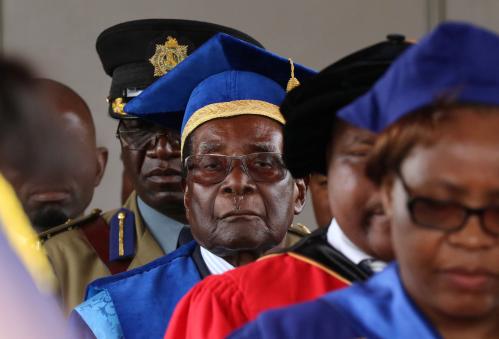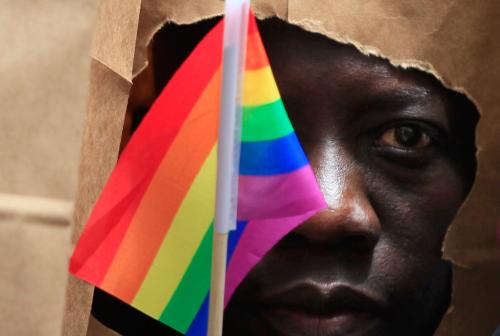South Sudan leaders agree to permanent cease-fire
On Wednesday, South Sudanese President Salva Kiir and former Vice President Riek Machar announced a permanent cease-fire. The agreement, which is set to take effect on Saturday, is the latest attempt to put an end to the four-year civil war in South Sudan, which killed tens of thousands of people and displaced more than 4.2 million. The agreement calls for the opening of humanitarian aid routes, the release of political prisoners, and the disengagement of armed forces. Moreover, the agreement states that a unity government is to be formed within four months and elections held within the next three years. This is not the first ceasefire signed—the one signed last December only lasted one day.
In other resolution news, on Tuesday, Ethiopian Prime Minister Abiy Ahmed hosted a high-level Eritrean delegation in Addis Ababa. Earlier this month, Ahmed stated that Ethiopia was ready to implement the peace agreement signed 18 years ago, putting to an end one of Africa’s longest-standing conflicts, which is over the Ethiopia-Eritrea border. The talks highlight the steps toward fully implementing the peace treaty.
Zimbabwe politics heat up as elections approach and blast goes off at President Mnangagwa’s political rally
Political tension in Zimbabwe is growing as the country’s first post-Mugabe elections approach on July 30. This week, President Emmerson Mnangagwa blamed dissidents within the ruling ZANU-PF party for an explosion on Saturday at a campaign rally. In the incident, two people died and 49 were injured, including the vice president. Mnangagwa said of the attack, “My hunch without evidence is that the people who are aggrieved by the new dispensation are the G40”—a faction in the ZANU-PF party that supported Grace Mugabe in succeeding her husband, now-former President Robert Mugabe. Earlier Mnangagwa had said the attack had been “calculated to achieve a bloodbath,” destabilizing the ongoing campaign. Although Mnangagwa did not directly accuse Grace Mugabe, he expects there will be arrests soon. According to The Guardian, many of those who were closely associated to the former first lady have fled Zimbabwe.
Nelson Chamisa—the main opposition leader—said he feared the blast on Saturday would be used as an excuse to clamp down on opponents. “We know that they would want to use it to start targeting certain individuals, certain candidates that they perceive to be their credible opposition,” said Chamisa. Chamisa also said that he is confident he will form the next government, but argued that the electoral field is biased in Mnangagwa’s favor.
Mercedes-Benz South Africa announces $700 million investment
On Wednesday, June 26, Mercedes-Benz South Africa announced a major expansion of its current automobile factory in the southeast coastal town of East London, South Africa. According to the announcement, Germany’s Daimler AG, parent company of Mercedes-Benz South Africa, intends to expand the manufacturing facility by two-thirds as well as create 800 more jobs. Currently, the factory processes about 110,000 cars per year and has 3,300 employees. The planned $700 million investment in the plant will be used to construct new paint and body shops as well as upgrade the assembly shop and logistic warehouses. Mercedes-Benz intends to use these upgrades to enable the facility to build its C-Class sedans.
The announcement comes at an opportune time for President Cyril Ramaphosa, who has made attracting investment to South Africa a priority during his tenure. This move is actually the first commitment of foreign investors since Ramaphosa stated his goal to bring $100 billion in investments into the country. Markus Schäfer, member of the divisional board of Mercedes-Benz Cars, production and supply chain management, even stated that “The [Ramaphosa’s] campaign aims for new investments, new work and new opportunities and education. When it comes to driving forward this initiative you can definitely count us [Mercedes-Benz] in. We believe that your strategy and our love and vision fit together very well.”
The automobile industry is the largest sub-sector of the country’s economy, making up about 7 percent of South Africa’s GDP, and has been one of the few industries that has not slowed during the economy’s recent downturn. Toyota, Ford, and BMW also have presences in the country.
Note: Kiara Rodriguez Gallego contributed to this post.







Commentary
Africa in the news: South Sudan cease-fire, Zimbabwe politics, and Mercedes-Benz’s South African investment
June 29, 2018